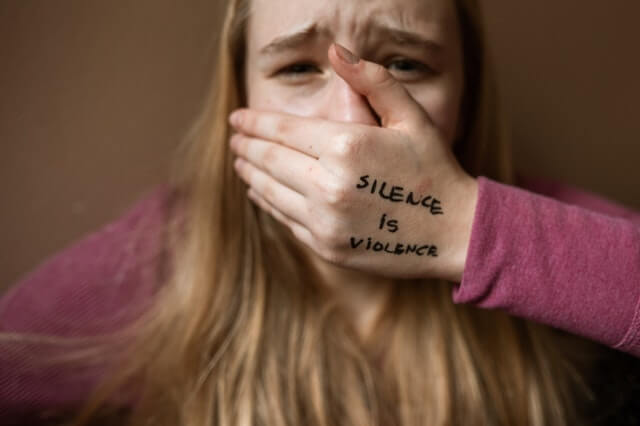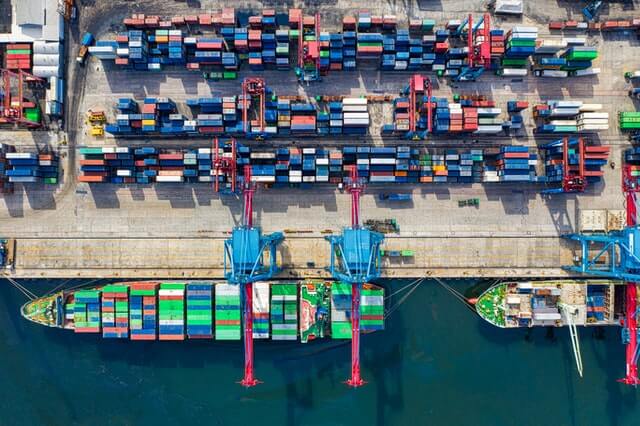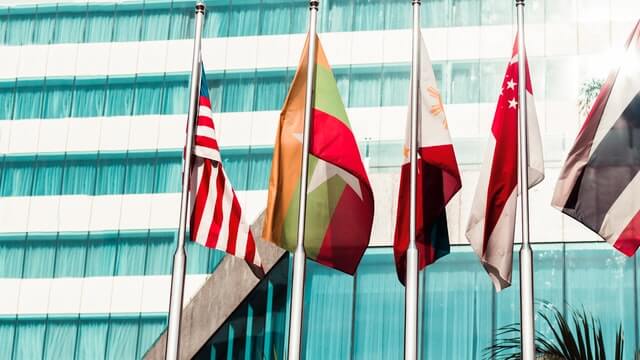This Blog is written by Jatin Pandey from Dharmashastra National Law University, Jabalpur. Edited by Ravikiran Shukre.
Discrimination is generally defined as an act or action by which a distinction is created between individuals which are based on different factors like caste, sex, income, community, etc. Many of us faced discrimination in our life. Though we have certain legislations which prohibit unlawful and unjustifiable discrimination. There are different types of…
This Blog is written by Shanu Agarwal from Manav Rachna University, Faridabad. Edited by Prakriti Dadsena.
Prostitution is legal in India. A number of related activities including soliciting , kerb crawling, owning or managing a brothel, prostitution in a hotel, child prostitution, pimping and pandering are illegal. There are, however, many brothels illegally operating in Indian cities including Mumbai, Delhi, Kolkata and Chennai. UNAIDS estimate there were 657,829…
This Blog is written by Anish Bachchan from Amity Law School, Noida. Edited by Prakriti Dadsena.
As of this writing, the question of freedom of speech is becoming more and more concerning. With the rise of government interference and internet censorship, people’s ability to express anything is disappearing. The government and the internet are not the only ones at fault. And in a time like this, the Covid-19 pandemic represents the failure to listen. This concern was…
This Blog is written by Anhadinder Singh from Amity Law School, Noida. Edited by Prakriti Dadsena.
A capital punishment is the sentence of execution for homicide and some other capital wrongdoings (genuine violations, particularly murder, which are deserving of death). Capital punishment, or the death penalty, might be endorsed by any state governing body for homicide and other capital violations. Capital punishment can be forced for a wide scope of offenses including murder, assault, bogus prediction, sacrilege, equipped…
This Blog is written by Zeeshan Husain from Indore H.R.K. Law College, U.P. Edited by Ujjawal Vaibhav Agrahari.
Justice Verma Committee was constituted to recommend amendments to the Criminal law so as provide quicker trial and enhanced punishment for criminals accused of committing sexual assault against women. The committee submitted its report on January 23, 2013. The other members on the committee were justice Leila Seth, former judge of the high court…
This Blog is written by Promita Ghosh from ICFAI University, Dehradun (Department of law). Edited by Prakriti Dadsena.
It is crucial that while validating the anti-terrorism laws the enactment should not be done at the fetch of human rights. There should be an equilibrium between one’s liberty and the sovereignty of the country. The United Nations defines Human Rights as the “Right to freedom of opinion & expression, including the freedom to hold opinions without an inference and to…
This Blog is written by Akshat Srivastava from Amity Law School, Noida. Edited by Ravikiran Shukre.
The first case of COVID-19 virus infection was reported in Wuhan, China in the month of October 2019. It is the deadliest virus that causes various kinds of diseases like heart failure, coronary artery disease, cancer, high blood pressure, flu, etc. It is highly contiguous. Since it was a new virus no medicine was available for its cure. So, in order to fight against…
This Blog is written by Anhadinder Singh from Amity Law School, Noida. Edited by Ravikiran Shukre.
Central Vista Redevelopment Project alludes to the continuous redevelopment to redo the Central Vista, India’s focal regulatory region situated close to Raisina Hill, New Delhi. The region was planned by Sir Edwin Lutyens and Sir Herbert Baker during British provincial standards and was held by the Government of India after autonomy.
This Blog is written by Sagun Modi from National Law University, Odisha. Edited by Priyanjali Priyadarshini.
Parliamentary privileges are a certain kind of immunity provided to a parliamentarian when he/she is discharging his/her functions in an ongoing session of the parliament or when present in the parliament. These are special privileges that allow a member of the parliament or a member of a state legislature to conduct some acts which would otherwise be not allowed outside the parliament.
This Blog is written by Ayushee Priya from KIIT School of Law, Odisha. Edited by Lisa Coutinho.
Development projects, political conflicts, setting up protected area networks and conversation areas, and natural disasters are many such factors that give rise to shifting or displacement of people in India. International Displacement Monitoring Centre released data in 2007 that due to development projects in over 50 years, 50 million have been displaced in India.
This Blog is written by Wafiya Tunnisa from Middlesex University, Dubai. Edited by Naina Agarwal.
India is one of the many countries in the world that has a diversified border line i.e it has a varied choice of countries and nations along its borderline. India has more than 15,000 km of external which can be told as international borders with Afghanistan, Bangladesh, Bhutan, China, Myanmar, Nepal, and Pakistan.
This Blog is written by Arth Ghiya from SVKM’s Pravin Gandhi College of Law, Mumbai. Edited by Uroosa Naireen.
After almost nine months of the outbreak of the COVID-19 pandemic in India, tireless efforts of the governments both at the Central and State level to impose restrictions by way of lockdown to curb the spread of the virus, India is still the second worst-hit country in the world due to COVID-19.
This Blog is written by Tamanna Kapoor from Symbiosis Law School, Noida. Edited by Ravikiran Shukre.
India is a country that’s known for its diversity and this is not only because of the presence of various different ethnic and cultural groups but also because it tries its best to protect these groups. The North-Eastern belt of India is one that is known for its indigenous tribes and their customs.
This Blog is written by Pallabi Choudhury from KIIT School of Law, Odisha. Edited by Prakriti Dadsena.
The whole world is fighting against the novel coronavirus or COVID-19. The 1st COVID-19 case was found on 30th January 2020 in India. From mid of March lockdown started. Due to this pandemic situation, the lawyer class people suffered in terms of livelihood, transport, etc. But after that by different planning of government such as Shramika train and other facilities the migrant workers able to return their home.
This Blog is written by Iesha Sharma from University of Petroleum and Energy Studies, Dehradun. Edited by Amrith R.
This blog focuses on the special issues and contribution of the border security by brining focus onto its different angles of border security and addressee the practice to secure the borders. They have been trough intense it’s of securitizes. As contemporary border security, they need to go to territorial limits of states to dispersed and heterogeneous sites located beyond geographical borderlines and as well as the inside some societies to secure the existence of the border crosses.
This Blog is written by Abhipsa Panda from KIIT School of Law, Odisha. Edited by Ujjawal Vaibhav Agrahari.
The administration is taking a shot at setting ‘one nation, one standard ‘ on the lines of ‘one nation, one ration card’ to guarantee quality items and administrations to shoppers. Consumer Affairs Minister Ram Vilas Paswan has said,” like ‘one nation, one ration card’ we will have ‘one nation, one standard’ so as to guarantee quality items in the nation,” Paswan stated, addressing the media after a gathering.
This Blog is written by Kaviya Kannan from Kasturba Gandhi Degree College, Osmania University. Edited by Uroosa Naireen.
Data localisation is considered a relatively new concept in India. Data localisation is the process of localising the citizen’s data to one’s home country for its processing, storage, and collection before it goes through the process of being transferred to an international level.
This Blog is written by Mayank Raj Pranav from Gujarat National Law University. Edited by Uroosa Naireen.
Democracy and Totalitarianism are two ideas that vary from one another generally. Democracy is a type of government wherein all the residents have an equivalent state in issues concerning their lives. Then again autocracy is a political framework wherein a solitary individual presented with all forces perceives no restriction to his forces.
This Blog is written by Nipa Dharod from SVKM’s Pravin Gandhi College of Law, Mumbai. Edited by Uroosa Naireen.
From conventional times, trade i.e. the transfer of goods and/or services from one entity to another has been classified into two types: – Domestic trade and international trade. International trade includes export trade i.e. when goods and services produced in one country are offered for sale in another country.
This Blog is written by Rachna Kumari from KIIT School of Law, Odisha. Edited by Maulika Awasthi.
The extraordinary development of data society and its reliance on Internet utilization around the globe and especially in India is along the side joined by the helplessness of social orders to cybercrime. Cybercriminals are not compelled by geological impediments as cyberspace is a free-streaming, borderless, and a worldwide issue.
This Blog is written by Vanshika Rana from Symbiosis Law School, Noida. Edited by Debargha Mukherjee.
“EU-India Strategic Partnership: A Roadmap to 2025” is a report that will guide collaboration between the EU and India throughout the upcoming five years. The EU-India’s 15th summit held on 15th July 2020 reiterated the EU-India Strategic Partnership, emphasizing the common ideals and values of democracy, freedom, rule of law and respect for human rights, with an objective of bringing significant benefits to citizens in the EU and India.
This Blog is written by Ishika Khurana from Vivekanand Institute of Professional Studies, IP University. Edited by Ravikiran Shukre.
A Defense Testing Infrastructure Scheme (DTIS) has been approved by the Defense Minister Rajnath Singh on 15 May 2020. The primary objective behind launching this scheme is to boost up the Government Defense Manufacturing base and Aerospace sector.
This Blog is written by Nisha Patnaik from KIIT School of Law, Odisha. Edited by Ravikiran Shukre.
The Indian military has been held in high respect over the world for their sheer coarseness and assurance. The one perceptible thing in the entirety of India’s outfitted clashes has been the individualistic methodology of each power.
This Blog is written by Abhishek Kishan from Central University of South Bihar, Gaya. Edited by O.S.S.Sarada Rasagnya.
Nobody nowadays can deny the fact that social media plays a potential role in uniting peoples across the globe. It has become the most favorite activity to hang out over social media through texting voice/video calling and whatnot.
This Blog is written by Jay Gajbhiye from National Law University, Odisha. Edited by O.S.S.Sarada Rasagnya.
The Commander of the Iranian Quds Force, General Qasem Soleimani, was assassinated by a drone attack on 3 January 2020 close to the airport of Baghdad. Amid the killing that has exacerbated conflicts in the ever-volatile Middle East, the legitimacy and else of the US attack has become one of the primary issues.
This Blog is written by Jatin Pandey from Kirit P. Mehta School of Law, NMIMS Indore. Edited by O.S.S.Sarada Rasagnya.
The General Agreement on Tariff and Trade (GATT) was signed at the conference in Geneva 1947. It came into force on 1 January 1948. After almost five decades of its existence; The World Trade Organization (WTO) was formed by reorganizing in January 1,995.
This Blog is written by Lisa Coutinho from SVKM’s Pravin Gandhi College of Law, Mumbai. Edited by Harshita Yadav.
The Constitution of India has enshrined the Indian Judiciary with the significant duty of interpreting the laws made by the legislative body of the government by settling disputes and punishing the lawbreakers, adjudicating justice, and identifying and filling in the legislative lacunas by setting out precedents.
This Blog is written by Kaviya Kannan from Kasturba Gandhi Degree College, Osmania University. Edited by Lisa Coutinho.
When the Bodos called for a separate state in the late 1960s, little did they know that this complication was going to last for over 50 years. Previously, their movement for a separate homeland began in the 1930s under the British rule, but it was only in the 1960s that they began to organize themselves.
This Blog is written by Shelal Lodhi Rajput from Symbiosis Law School, Pune. Edited by Debargha Mukherjee.
The Initial tracing of telecom sectors can be traced way back to the 19th century when the Britishers introduced telegraph services in India. Since that time, the evolution in the field of telecom sector has revolutionized in many ways.
This Blog is written by Manjari Shukla from Symbiosis Law School, Noida. Edited by Lisa Coutinho.
Sexual harassment at workplace or sexual harassment as a whole has been there in society since time immemorial. Thus, we can say that it has become synonymous with our society. But recently the trends have changed.
This Blog is written by Vidur Thanawala from Bennett University, Greater Noida. Edited by Prakriti Dadsena.
The world in the 21st century is considered to be moving more and more towards the globalization, in today’s world everything is accessible on the internet. This is considered to be a bane for the world but one of its aspects is also considered to be boon for the world.
This Blog is written by Dhruv Agarwal from Symbiosis Law School, Noida. Edited by Ravikiran Shukre.
Today, digital technologies play a major role in the delivery of health care. The National Digital Health Blueprint (NDHB) offers an approach to developing fundamental components of IT that will enable the health ecosystem to streamline knowledge flows through players in the ecosystem while keeping people, their privacy and data confidentiality at the forefront.
This Blog is written by Vartika Saxena from Symbiosis Law School, Noida. Edited by Ravikiran Shukre.
The government depends on a vast range of measures, including political, economic, and military power, as well as diplomacy, to safeguard the security of a nation-state. They may also act to build the conditions of security regionally and internationally.
This Blog is written by Neyan Madhavan from Symbiosis Law School, Noida. Edited by Ritika Sharma & Prakriti Dadsena.
National Security or national safeguard is the security and defence of a nation state, including all the residents of that particular nation, economy and organisations which is considered to be an obligation on the part of the government.
This Blog is written by Janmesh Mehra from CPJ College of Higher Studies & School of Law, Delhi. Edited by Srishti Tiwari.
In this era of technological advancement, which has triggered advancement in all fields like science, arts, communication, the judicial system, and other academic fields; forensic psychology is an offspring of the developments in the study of psychology.
This Blog is written by Vidur Thanawala from Bennett University, Greater Noida. Edited by Anshika Porwal.
One such crime that was committed was the Delhi Gang Rape Case, or commonly referred to as the Nirbhaya Rape Case, after this case, a committee headed by Justice Verma recommended certain amendments to the provisions that govern the offence of rape under the Indian Penal Code.
This Blog is written by Srishti Tiwari from University School of Law and Legal Studies, GGSIU, Delhi. Edited by Harshita Yadav.
The global economy has been seriously crippled as the planet faces one of the worst pandemics ever in human history. The ‘rent charge’ continues to be the hurdle for commercial/business companies and the common man in these difficult times.
This Blog is written by Ayushi Aggrwal from University of Petroleum and Energy Studies, Dehradun. Edited by Swati Pragyan.
“Electricity is the soul of the universe” was once said by John Wesley. Benjamin Franklin while inventing electricity might have never thought himself that his invention would become so essential for the universe and could do wonders in the future.
This Blog is written by Rashi Aggarwal from Delhi Metropolitan Education, Noida. Edited by Ritika Sharma.
Whenever a criminal or civil case is filled there is a proper hierarchy that needs to be followed. Supreme Court is the apex court of India, but before reaching the case to that level various other courts are also involved. First, the case is to look after by district court, then by the high court and the last is the Supreme Court.
This Blog is written by Vedika Ghai from Symbiosis Law School, Noida. Edited by Prakriti Dadsena.
Since our very first Five-Year-Plan in 1952, our very own Indian policy-makers have surely been facing problems with family planning. Somewhere in between the years 2015 and 2016, India had spent more than $100 million on its family planning initiatives.








































